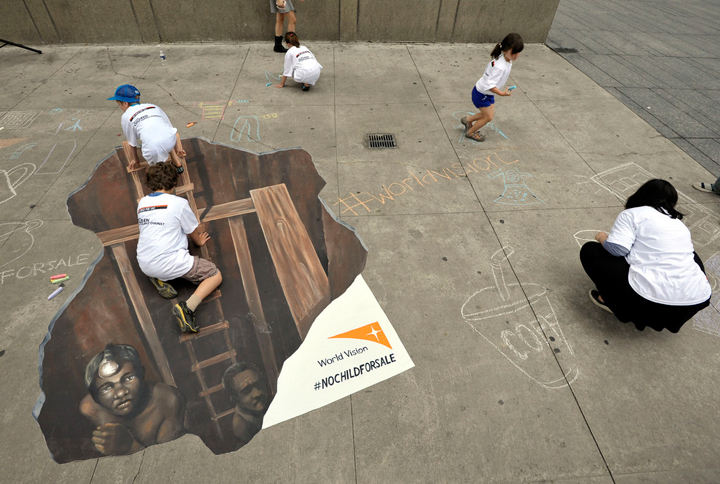TORONTO – A majority of Canadians say they “feel responsible” for protecting children from exploitative child labour and many believe companies and corporations need to take action to protect children from such situations.

In an Ipsos Reid poll commissioned by World Vision, 80 per cent of Canadians say children are exploited due to Western demand for the cheapest products, which pushes companies to hire cheap labour and 77 per cent want to make an effort to ensure they know how and where things they purchase are made.
“Canadians know it is wrong when children are forced to do work that is detrimental to their health and well-being,” said Cheryl Hotchkiss, manager of World Vision’s No Child For Sale campaign. “Unfortunately there is still too much mystery behind product labels. We need to know more about the products we buy, not just where they’re made, but who makes them. Consumers will only get answers if we start asking questions.”
READ MORE: Canadians willing to ‘pay extra’ for products free of child labour, poll shows
Nine in 10 Canadians said they are even willing to pay more for products guaranteed to be made free of child labour and exploitation, with just 13 per cent saying they would not.
No Child For Sale
According to UNICEF, 22 000 children die every year in work-related accidents and 73 million working children are less than 10 years old.
Last year, World Vision launched a new campaign called No Child For Sale, which provides resources for Canadians to become more responsible consumers.
READ MORE: World Vision’s new campaign tackles child exploitation
In the heart of Toronto’s shopping district Wednesday, the organization set up 3D canvas paintings – one of a mine site, the other of a cocoa plantation.
Passersby were invited to step into these child labour scenes.
“There is a critical role for Canadian companies to play,” said Reena Vohra, policy advisor for World Vision. “And in the wake of the Bangladesh factory collapse last year, they are becoming attuned to their role and consumer concerns.”
Bangladesh factory building collapse
On April 24, 2013, a Bangladesh factory building collapse killed more than 1,100 textile workers and injured more than 2,500, sparking debate worldwide about retail supply chains and ethical consumerism.
One year since the Bangladesh factory disaster, several companies whose clothing was assembled in Rana Plaza factories have compensated survivors and families of the victims.
READ MORE: What has been done to prevent another Rana Plaza disaster?
Last May, Canada’s Loblaw Inc. became one of several countries to sign an international agreement to ensure worker safety at textile factories in Bangladesh.
– with a file from Nick Logan, Global News




Comments